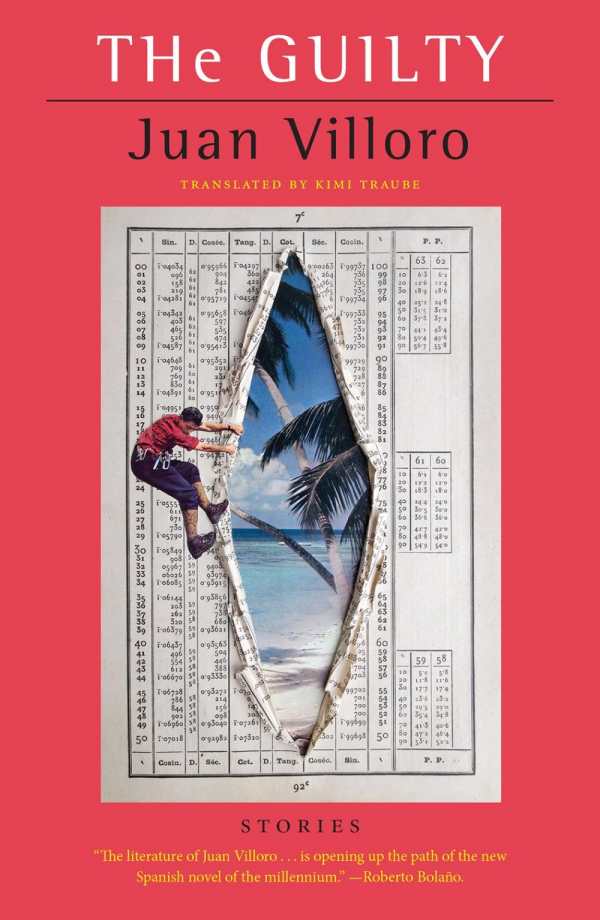The Guilty
Internationally acclaimed short stories delve into contradictions in Mexican culture, mythology, trust, and forgiveness.
Prominent Mexican writer Juan Villoro, who has yet to be celebrated, much less discovered, in the United States, has garnered prestigious awards and nominations in Spain, France, and Italy for his novels and short stories. George Braziller has chosen to introduce the American public to Villoro’s postmodern, extremely accessible style by publishing The Guilty, a collection of seven robust and gritty short stories.
The combination of Villoro’s colorful use of the contradictions in Mexican culture paired with Kimi Traube’s precise yet imaginative translation makes for quick, enjoyable reading, as if the evening were spent listening to a rugged old uncle telling life stories on a summer night. Villoro also makes full use of paranoia and dark humor as conventions of postmodernism through his seven male, first-person narrators who navigate through the mythological world of Mexican signs and symbols while addressing the beliefs of trust and forgiveness in relationships.
In the opening story, “Mariachi,” El Gallito de Jojutla, the Little Rooster from Jojutla, is a famous mariachi that hates being one. He is more interested in finding young women with white hair to satisfy his mother issues than because he just likes white hair. As he falls for a middle-aged woman, he confronts exhibitionism, his manhood, homosexuality, and the need for fame to satisfy his sexual desires. In the titular story, two brothers share one woman, which one brother confesses to the other in a movie script he writes for him to sell to a gringo producer form Tucson. In “Mayan Dusk,” an old man and El Tomate, his friend of forty-plus years whose “morality runs in zig zags,” test the boundaries of forgiveness through the sacrifice of a love affair and the capture and liberation of a green iguana.
Replete with deception, faded duty, and machismo, The Guilty takes on many preconceptions of Mexican culture so that it can deconstruct them and honestly portray the quirky inconsistencies of daily life in Mexico City.
Reviewed by
Monica Carter
Disclosure: This article is not an endorsement, but a review. The publisher of this book provided free copies of the book to have their book reviewed by a professional reviewer. No fee was paid by the publisher for this review. Foreword Reviews only recommends books that we love. Foreword Magazine, Inc. is disclosing this in accordance with the Federal Trade Commission’s 16 CFR, Part 255.

